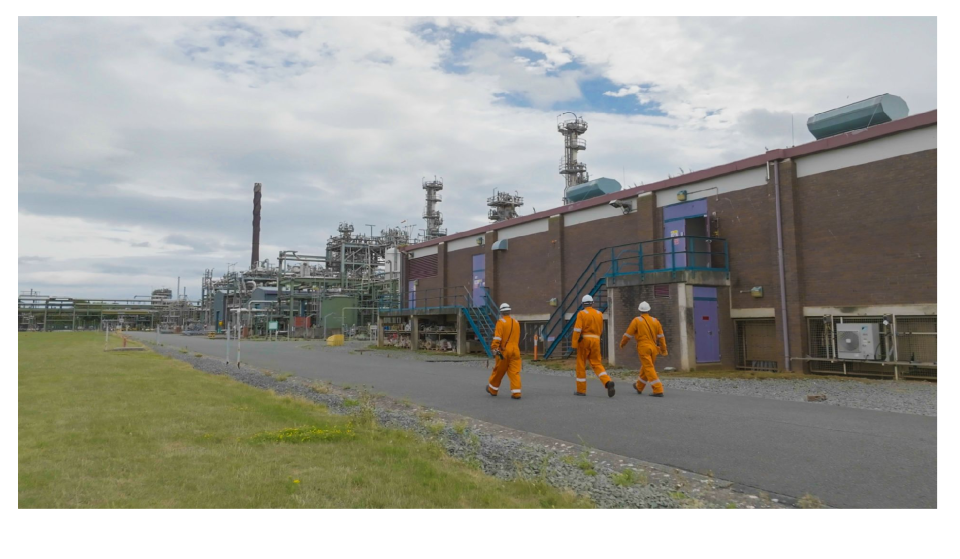- Says it’s a significant milestone in the development of the HyNet CCS project
“Eni welcomes commitment and funding from UK Government to the HyNet Cluster, marking the launch of the Carbon Capture & Storage industry in the UK.”
Eni has announced that it has successfully secured the UK Government’s commitment and funding for the granting of an Economic License for the Liverpool Bay CO2 transport and storage (T&S) project. The allocation of funding marks the launch of the UK’s CCS industry. The funding includes investment for Track 1 industrial emitters and is a key milestone towards the execution phase of HyNet, which will unlock significant investment in the area, the company told Energy Window International in a post.
According the statement, HyNet is one of the UK’s most advanced CCS project, and the Italian Eni, as the operator of the CO2transport and storage system for this initiative, will safely contribute to reduce emissions from hard-to-abate industries situated in the North West of England and North Wales. With an initial storage capacity of 4.5 million tonnes of CO2 per year in the first phase, and the potential to increase to 10 million tonnes of CO2 per year after 2030, the project will make a significant contribution towards reducing these industries impact and achieving the UK’s target ambition to store 20-30 million tonnes per year of CO2.
The project is also expected to transform one of the UK’s most energy-intensive industrial regions into one of the world’s first low-carbon industrial clusters by reusing the depleted reservoirs operated by the firm in Liverpool Bay. Adding that HyNet will not only guarantee local employment, supporting the decarbonisation of hard-to-abate industries, but will also be able to maintain the UK’s industrial competitiveness for the long term by creating new production chains and jobs.
The Secretary of State for Energy Security and Net Zero of the United Kingdom, Ed Miliband, added: “On Monday, 150 years of coal in this country came to an end. Today, a new era begins. By securing this funding, we pave the way for securing the clean energy revolution that will rebuild Britain’s industrial heartlands. I was proud to kickstart the industry in 2009, and I am even prouder today to turn it into reality. This funding is a testament to the power of an active Government working in partnership with businesses to deliver good jobs for our communities.”
Eni CEO, Claudio Descalzi, commented: “Today’s news is an important step towards the creation of a new business chain linked to the energy transition. HyNet will become one of the first low-carbon clusters in the world and the project will decarbonise one of the key energy-intensive industrial districts as well as unlock significant economic growth in this region of the UK. This commitment is clear evidence of how governments and industry can work together to implement pragmatic and effective industrial policies, in order to accelerate decarbonisation. On our side, it reaffirms Eni’s role as a key partner with the UK in enabling its journey towards Net Zero.”
Eni maintained that it has lead position in the UK where, in addition to being the operator of the CO2 transport and storage of the HyNet project, it also plays a leading role in the Bacton Thames Net Zero project, which aims to contribute to the decarbonisation of the South East of England and the Thames region – all In line with the company’s strategy to drastically reduce or eliminate emissions. In the UK, Eni total gross storage capacity amounts to about 1GTon.
Eni said it believes that CCS will play a crucial role in the energy transition and can become an important strategic line to support the company’s decarbonisation ambitions. Additionally according to it, it represents a solution to reduce emissions and provide an opportunity to generate value by creating a new business tied to the transition. Eni says it has developed a distinctive model that allows the Company to develop CCS projects that are more cost-effective and quicker to implement, leveraging three distinctive elements: the extensive portfolio of depleted gas fields; the repurposing of existing infrastructure; and the asset’s proximity to industrial clusters.
The company says it prides itself as a key partner in the UK’s energy transition, where it claims to be present across the entire energy value chain – which includes the CCS sector, offshore wind, and in the potential development of projects related to magnetic fusion, not excluding its sustained contribution to the UK’s energy security through the business combination between UK-based Eni and Ithaca Energy for upstream activities. Maintaining that these combined activities have made it possible to consolidate its strategic portfolio in the UK with an investment pipeline focused for over 80% on decarbonised businesses, “perfectly matching the UK’s ambition to be a global leader in the energy transition.”

